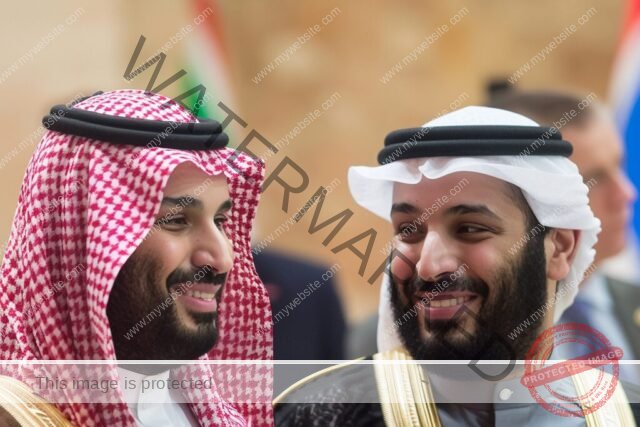In an era where geopolitics dictates the course of international relations, the evolving dynamics between Saudi Arabia and Israel emerge as a fascinating study of diplomacy, strategic alliances, and the quest for stability in the Middle East. From an outward posture of distance and contention, the undercurrents of their interaction suggest a gradual shift towards a more nuanced engagement. This article delves into the multifaceted relationship between these two pivotal states, exploring their historical background, current engagements, and the covert cooperation that often eludes the public eye.

Historical Context: The Foundations of a Complex Relationship
The relationship between Saudi Arabia and Israel is steeped in the history of the Middle East, a region characterized by its rich cultural heritage and complex geopolitical landscape. Historically, the emergence of Israel in 1948 marked the beginning of overt tensions with its Arab neighbors, including Saudi Arabia. These tensions were primarily rooted in the broader Arab-Israeli conflict and the struggle for Palestinian statehood, a cause that Saudi Arabia has historically supported.
However, beneath the surface of this adversarial stance, there have been periods where mutual interests have paved the way for covert cooperation. These instances were driven by shared concerns over regional threats, particularly the influence of revolutionary Iran post-1979. Such shared threats have, at times, necessitated a reevaluation of their mutual stance, leading to discreet engagements that have shaped the trajectory of their relationship.
Evolving Dynamics in the 21st Century
In recent years, the geopolitical landscape of the Middle East has undergone significant transformations, prompting a reassessment of relationships within the region. The rise of Iranian influence, concerns over terrorism, and the changing priorities of global powers have created new imperatives for Saudi Arabia and Israel. These developments have catalyzed a shift, moving their relationship from one of cautious distance to incidental alignments.
Shared Strategic Interests
At the heart of the Saudi-Israeli dynamic are shared strategic interests that transcend their historical disputes. Both nations view Iran’s regional aspirations and its nuclear program as a threat to their security. This mutual concern has been a driving force behind their covert cooperation, fostering a climate where security and intelligence sharing have become increasingly significant, albeit discreetly.
Furthermore, the recognition of the importance of economic modernization and technological advancements in sustaining their global standing has provided another avenue for potential collaboration. Saudi Arabia’s Vision 2030, aimed at diversifying its economy, aligns with Israel’s status as a technology hub, hinting at prospective areas of cooperation beyond the security realm.
The Abraham Accords: A New Era?
The Abraham Accords, brokered by the United States in 2020, signaled a turning point in the Middle East, with several Arab countries normalizing relations with Israel. While Saudi Arabia has not formally joined the Accords, its tacit approval and the subsequent relaxation of airspace restrictions for flights to and from Israel suggest a subtle shift in its stance.
This development hints at a potential reconfiguration of alliances in the region, with Saudi Arabia and Israel finding common ground in their pursuit of stability and economic prosperity. It raises questions about the future trajectory of their relationship and the possibility of a formal normalization of ties.
The Path Forward: Implications and Challenges
The evolving relationship between Saudi Arabia and Israel stands at a pivotal juncture, with significant implications for Middle Eastern geopolitics. Their growing alignment, driven by shared concerns and strategic interests, reflects a pragmatic recognition of the benefits of cooperation.
However, the path forward is fraught with challenges. The Palestinian issue remains a central concern for Saudi Arabia and a key obstacle to overt normalization with Israel. Balancing the pursuit of strategic interests with the need to maintain legitimacy and support among its population and the broader Arab world remains a delicate task for Saudi Arabia.
Moreover, the dynamics of regional politics and the influence of external powers will continue to shape the contours of their relationship. The role of the United States, shifting global alliances, and the evolving threat landscape will play a critical role in determining the future course of Saudi-Israeli engagement.
In conclusion, the relationship between Saudi Arabia and Israel embodies the complexities of Middle Eastern geopolitics. From historical animosities to a cautious entente, their interaction reflects a landscape where pragmatic considerations increasingly dictate the course of diplomacy. As the region stands at a crossroads, the unfolding Saudi-Israeli dynamic will undoubtedly continue to be a subject of keen interest and significance.



MOST COMMENTED
Diplomacy / Geopolitics / Gulf / Middle East / Our Books / Qatar
Groundbreaking Analysis of Qatari Foreign Policy Unveiled in New Book by Hichem Karoui
France / GEW Assessment Report
Renversement de situation: La France de gauche l’emporte
GEW Anti-Fascist Briefs
The Neo-Fascist Roots of the RN (Rassemblement national)
Book Release / Education / France / Our Books / Research / Social Sciences and Humanities
Book release: “The French Sociological Tradition: Essential Thinkers and Theories ”, by Hichem Karoui
France / Our Books / Research / Social Sciences & Humanities
Nouvelle parution : La tradition sociologique française : penseurs et théories essentiels (version anglaise) par Hichem Karoui
الإسلام / الإسلام في الغرب / علوم اجتماعية / كتب
أن تكون مسلماً في مجتمع غير مسلم: الحوار والتفاهم في ظل التنوع الثقافي
تحليل سوسيولوجي / علوم اجتماعية / كتب / مناهج البحث
منهجيات العلوم الاجتماعية: النظرية والتطبيق